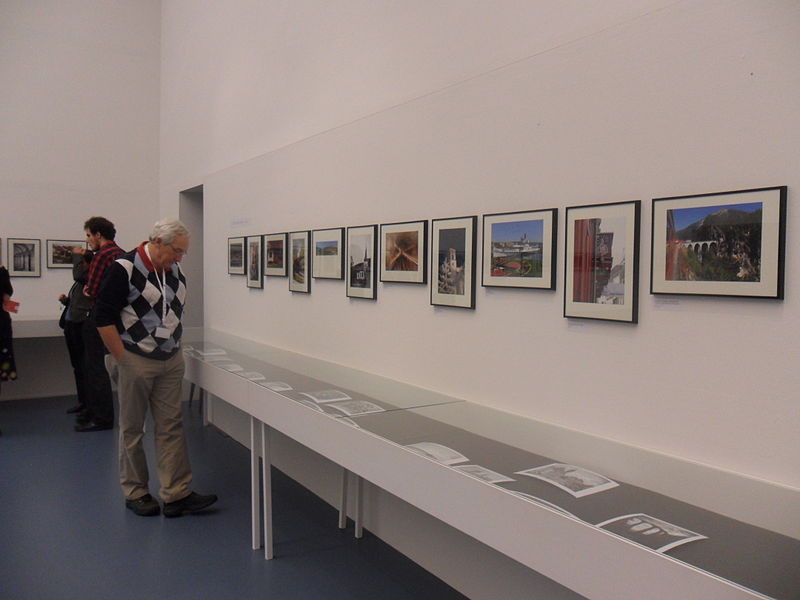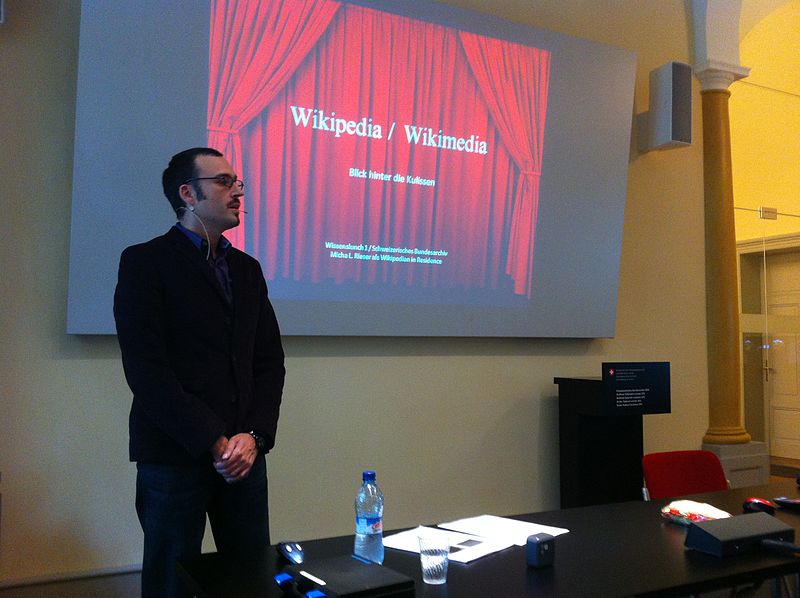2013 was the year in which the Open Knowledge Foundation adopted the OpenGLAM principles, the Swiss association Opendata.ch officially launched its own OpenGLAM Working Group and welcomed new members. These two milestones show that the movement in favor of opening up our cultural heritage is gaining momentum. We are seeing more institutions engaging global audiences, making their collections more discoverable and connected than ever: allowing visitors and users not only to enjoy the riches of the world’s heritage institutions, but also to contribute, participate and share culture online.
Although still the beginning of a relatively recent development, there are already many instances where institutions have chosen to live up to the OpenGLAM principles – at least for parts of their collections. Multiple volunteer-driven communities and non-governmental organizations are stimulating and facilitating the process of opening-up and re-using our cultural heritage. In an attempt to take stock of OpenGLAM in Switzerland and to provide an idea of the dynamics of the movement, let us have a look at what has been achieved over the past year.
Image uploads and content donations to Wikimedia Commons
In 2013, several institutions have cooperated with Wikimedia CH in order to upload images to Wikimedia Commons. By doing this they expose material to the Wikipedia community, which then include them into Wikipedia articles for illustration purposes, or use them to write about topics not yet covered by Wikipedia. Such image uploads are also a good opportunity for the institutions themselves to receive feedback about errors in their metadata.

General view of Zurich around 1884 by Heinrich Siegfried. Picture provided by Zentralbibliothek Zurich (Wikimedia Commons, Public Domain)
In February and March, the Zentralbibliothek Zürich (Central Library of Zurich) successively uploaded ca. 100 public domain images from their extensive collections, representative of several thematic areas: single-leaf broadsheets, landscapes, portraits, and cultural-historical material. In November, Zentralbibliothek Solothurn followed suit with the upload of ca. 1150 public domain images, mostly covering topics related to the greater Solothurn area. And in December, the Swiss Federal Archives uploaded over 5000 images from their World War I collection which they released under a CC-by-sa license. Images from these three uploads have been used in about 250 Wikipedia articles in more than 40 language versions, receiving around 4.5 Mio. page views yearly, and in open source projects like SwissGuesser.
Digitization projects resulting in free content
Several projects took to scanning particularly valuable or endangered items or documents as a starting point. The resulting media files are then also uploaded to online platforms like Wikimedia Commons where they can be accessed by a wider public and reused. Digitization projects running in 2013 included the Public Domain project dedicated to the digitization of old gramophone records, as well as a joint project of Wikimedia CH, the International Association for Alpine History (IAAH), and the Laboratorio di Storia delle Alpi (LabiSAlp), focusing on the history of the Alps.
A photo contest to collect freely licensed content
For the third time in a row, Wikimedia CH organized the Swiss edition of the “Wiki Loves Monuments” photo contest, an international event dedicated to cultural heritage. All pictures in the contest must depict a historical monument figuring on one of the official lists, are to be released under a free copyright license and uploaded to Wikimedia Commons. Images collected through the contest are used by the Wikipedia community to illustrate Wikipedia articles. In connection with this year’s contest, an exhibition was produced in cooperation with the Swiss National Library, featuring pictures both from various editions of the Swiss “Wiki Loves Monuments” photo contest and from the Federal Archives of Historical Monuments.

Photo exhibition: “Monuments through time“. (Photo by Moumou82, Wikimedia Commons, CC-by-sa)
This year’s Swiss edition of the contest resulted in the upload of almost 4000 photos. One of them was selected by the international jury as the best picture of this year’s Wiki Loves Monuments photo contest, and attracted the attention of the media both nationally and internationally.
Data releases and error reports
Both the Protection of Cultural Property Section of the Federal Office for Civil Protection and the Canton of Zürich have made data sets available with official monuments lists. These lists were used as a basis for the Wiki Loves Monuments photo contest. In the case of the Federal Office for Civil Protection, the Wikipedia community has provided an error report to the public authorities that will be taken into account in the next update round.
With the launch of the open data portal of the Swiss Confederation in September 2013, the Swiss National Library released several data sets under a free copyright license.
Guided Tours for Wikipedians
In order to get in touch with new subject matters or to get a chance to take photos of otherwise inaccessible items, Wikipedians like to visit small museums and other interesting institutions. These visits usually result in the improvement of related articles.
Up to ten Wikipedians regularly attend the Wikipedia meetup in Zurich. Sometimes a museum visit in the afternoon preludes the usual dinners and talking all evening long. The three museums visited in 2013 are the Kościuszko museum in Solothurn, the Heimatmuseum in Gersau, and the museum of the Theater Stok in Zurich.
Two further visits were organized to the Swiss Federal Archives (in connection with the activity of the Wikipedian in Residence – see below), and to the Federal Archives of Historical Monuments (in connection with this year’s Wiki Loves Monuments closing event at the National Library).
Re:Public Domain – a cultural project fostering the re-use of public domain content
In order to celebrate the public domain and to inspire old works with a new live, Dock18, the Zurich based Institute for media cultures of the world, encouraged various artists to create new works of art based on works that recently entered into the public domain. These new creations of various formats (texts, music, theatre performances, installations etc.) were presented to the public during a series of events in Zürich, Geneva, Aarau, and Bern in the second half of 2013.
Re:public Domain Night in Zurich, 27 September 2013
QRpedia Pilot
Another way of bringing free content to new publics are QRcodes pointing to Wikipedia articles. In spring 2013, a group of students of the Bern University of Applied Sciences carried out a QRpedia pilot at the Bern Natural History Museum’s “Africa” section in order to learn more about the usability of QRpedia codes (full report in German).
First Wikipedian in Residence in Switzerland
So-called “Wikipedians in Residence” are a proven and tested approach to establishing and strengthening partnerships between heritage institutions and the Wikipedia/Wikimedia community by fostering mutual understanding and facilitating collaboration between Wikipedians and GLAM staff.

Micha L. Rieser – the first Wikipedian in Residence in Switzerland. (Photo by Marco Majoleth, Wikipedia.de, CC-by-sa)
In summer 2013, the Swiss Federal Archives and Wikimedia CH joined forces to hire the first Wikipedian in Residence in Switzerland. The initial goal was to make more than 5’000 digitized photographs from a collection on the First World War searchable and freely accessible via Wikimedia (see above). The Wikipedian in Residence also taught Federal Archives staff how Wikipedia functions behind the scenes, and how best to support the Wikipedia community in their endeavor of assembling and maintaining the world’s largest knowledge base. Conversely, Wikipedians were invited to visit the archives’ premises.
Introductory courses for GLAM personnel
Further Wikipedia/Wikimedia introductory courses for GLAM personnel were offered by Diego Hättenschwiler in spring 2013: One at the Library of the Theological Faculty of the University of Basel; the other one at Bern University of Applied Sciences. The second one was intended for people active in the library and documentation field. Out of the 12 participants, none of whom have edited Wikipedia before, four created or improved articles that are in direct relation with their institution, and one has since become an active editor who has edited many different articles. Furthermore, the workshop turned out to be a good occasion to get in touch with representatives of other institutions.
In the fall of 2013, the Geneva School of Business Administration offered a continuous education day on the topic of linked open data in the library world.
Communities of Practice
In addition to classical training offers, there have been various initiatives aiming to inspire and to build up communities of practice around topics related to OpenGLAM. Thus, the BJ Institute, supported by Wikimedia CH, initiated the creation of a digitization experts working group; the Swiss Federal Archives invited to a Digital Humanities Workshop in order to discuss the ways digital humanists will interact with archival material in the future; the Migros Genossenschaftsbund organized a colloquium around the theme “Big Data and their impact on culture”, the National Library, in cooperation with infoclio, carried out an open data workshop to discuss how the newly released data files could be put to use by researchers; and the HTW Chur hosted an unconference around the topics of open data, open access, and open educational resources.
With a more international scope, the Opendata.ch association co-organized the 2013 edition of the Open Knowledge Conference in Geneva, featuring both an OpenGLAM workshop and a GLAM conference track. The occasion was used to exchange experiences among OpenGLAM advocates from different countries and to prepare the launch of an OpenGLAM Working Group and OpenGLAM network in Switzerland in 2014.

Jill Cousins (director of Europeana) talking at OKCon 2013 in Geneva.
Furthermore, it should be mentioned that the Swiss Creative Commons team has contributed towards the publication of the new Creative Commons licenses in November 2013, which will particularly facilitate the free licensing of datasets in the European Union and throughout other countries that recognize sui generis data base rights.
To coincide with the release of Creative Commons 4.0, the Swiss CC working group had a workshop to redesign the website, to relaunch soon.
Research
In the area of research, concretely focusing on OpenGLAM-related issues among heritage institutions in Switzerland, the following contributions should be mentioned:
The Bern University of Applies Sciences carried out a pilot survey among heritage institutions in Switzerland in order to find out where they stand with regard to open data and crowdsourcing and how they perceive these rather new trends.
- Estermann, Beat (2013): Swiss Heritage Institutions in the Internet Era. Results of a pilot survey on open data and crowdsourcing, Bern University of Applied Sciences, E-Government Institute. (English / German / French summary published in arbido 4 2013)
Two researchers of the Geneva School of Business Administration analyzed job offers in Switzerland, Germany, and Austria in order to identify key competencies for information professionals working in the area of linked open data. In addition, they surveyed big libraries and library networks in Switzerland in order to find out which institutions already had linked open data related projects running.
- Hügi, Jasmin / Prongué, Nicolas (2013): Linked Open Data: quelles nouvelles competences pour les professionnels de l’information? arbido 4 2013, pp. 7-9.
- Hügi, Jasmin / Prongué, Nicolas (2013) : Les applications basées sur les LOD en bibliothèque : un tour d’horizon. arbido 4 2013, pp. 15-16.




1 Kommentieren
Panoptikum: exploring new ways to categorize a collection of various unusual and unique objects – Open Knowledge International Blog
2019/05/09[…] Europeana – europeana.eu – via glam.opendata.ch […]